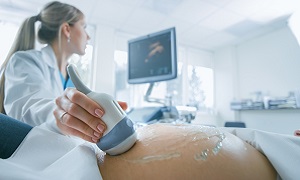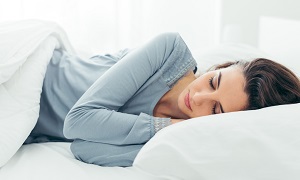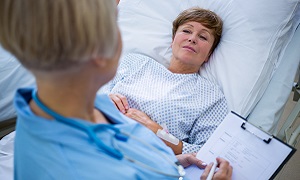What is Diverticulitis?
Diverticula are small pouches that develop in the lining of your large intestine, usually forming in the lower part of the organ. Now, while diverticula are quite common (especially among 40+ year olds ) and harmless in nature, the most common disorder of the diverticula will be Diverticulitis, a condition where one or more of the pouches become inflamed or infected. While most Diverticulitis cases just need dietary regulations, some of the severe cases may require surgical intervention for complete treatment.
Did you know?
Almost 50% of people reaching the age of 50 will have some form of Diverticulitis, be it mild or severe in nature.
Symptoms of Diverticulitis
While most people with this condition hardly experience any form of symptoms, common Diverticulitis symptoms can still be narrowed down to:
- Chronic pain in the abdomen (the lower left side)
- Constipation or diarrhea
- Bloating
- Abdominal sensitivity
If the Diverticula gets inflamed, you may experience additional symptoms such as;
- Nausea or vomiting
- Fever
- Rectal bleeding
- Bloody stool
Causes of Diverticulitis
The colon in the human body is quite a fragile organ which when subjected to pressure of any sort may pave way for diverticulitis. Even though causes usually vary from individual to individual, doctors have streamlined the primary causes or risk factors for developing diverticulitis as:
- Lifestyle Habits- Research says smokers are more likely to fall prey to diverticulitis than non-smokers or people who consume limited amounts of alcohol
- Dietary choices- If your diet includes high-level animal fat and low-fiber combination, you might risk developing diverticulitis
- Weight- Being obese or overweight will immediately increase your chances of developing this condition as excess body fat often puts unnecessary pressure in the abdominal area.
- Sedentary lifestyle- Poor dietary choices, overweight and a lifestyle without basic exercises together can increase your chances of developing this disease.
In some rare cases, certain medications such as invasive steroids, opioids, frequent intake of anti-inflammatory drugs, etc can increase the chances of developing this condition.
Did you know?
Dietary habits amongst Africans and South Asians are high in fiber which is why this condition is not too common amongst these parts of the world. However, fiber intake is low in western countries which makes Diverticulitis quite a common condition for these countries.
Diagnosis of Diverticulitis

Based on your medical history, ongoing treatment, current and past medication history and other variable factors; your healthcare professional might prescribe a list of tests to determine the presence of diverticula in your intestines. Some of these tests include:
- Ultrasound, MRI or CT scan
- Pregnancy Test (in some rare cases, this condition can be confused with pregnancy)
- Urine or stool sample examination (to determine the presence of infection)
- Colonoscopy
- Pelvic exam in women (to rule our gynecological complications)
Treatment options of Diverticulitis
Diverticulitis is a disease that you can self-treat with a little help from your healthcare professionals. While most cases are harmless, some active cases may require surgical intervention. On diagnosis, your doctor will gauge the intensity or severity of the condition and prescribe a treatment method that fits the reports.
While treatment methods heavily vary, the most common ones include:
Self-Care
Self-Care includes both dietary changes and restrictions along with lifestyle changes. For instance, in order to give your digestive system some rest, your doctor may put you on a liquid diet for a while. Your dietitian or doctor can also limit fiber intake in the initial stages and encourage you to consume more as your symptoms improve. Self-care would also include reducing medication intake, especially blood-thinners, painkillers, and aspirin. This would also mean saying no to smoking or alcohol consumption until your doctor gives you the go-ahead!
Medical Draining
Surgery
Possible complications of Diverticulitis
Ignoring symptoms or treatment for Diverticulitis may result in either one or more of these complications-
- An infected diverticula can pave path for fistulas that proceed to connect with nearby organs creating a complication
- Sometimes, an inflamed or infected diverticula can create pus pockets known as Abscesses. This situation can further worsen into a condition we call peritonitis.
- Intestinal blockage can be one of the complications
- Scarring or tearing of the abdominal wall can lead to further complications.
Prevention is Better Than Cure
While Diverticulitis based on the severity of the condition can be treated, doctors often recommend prevention over cure with some of the preventive steps to a healthy intestine including:
- Dietary or nutritional control (Consult a dietitian if needed)
- Basic exercise (free-hand, running, cycling)
- Medication restriction (consult your healthcare professional if medication is prescribed)
- Quit Smoking
- Body weight maintenance
FAQs
Are there any special dietary recommendations for this condition?
Yes! Doctors often recommend ample amount of fluid intake and bulk-forming laxatives (only after discussing with your healthcare professional)
What sort of diet should I generally avoid?
Usually, food saturated in high animal-fat (red meat for instance) is considered bad for this condition and for your health in general. Try combining your meat intake with a healthy amount of fiber intake.
Will my Diverticulitis recovery take long?
Recovery heavily depends on the severity of your condition. If there are no complications involved, antibiotics prescribed alone can show positive results within 24hr. The condition should dissolve within 5-10 days completely. Surgical treatment methods may include longer recovery.
Can I ease the Diverticulitis pain at home?
Yes you can! Doctors often recommend heating pads or relaxation techniques such as deep breathing to check diverticulitis pain instantly. However, if this doesn’t work, you can opt for non-prescription pain medication for excruciating pain (only on doctor advisory)



